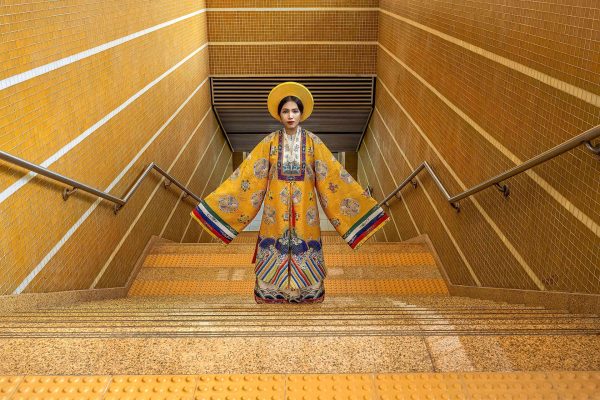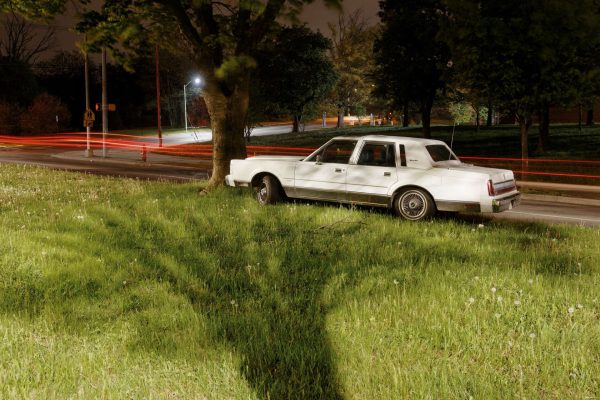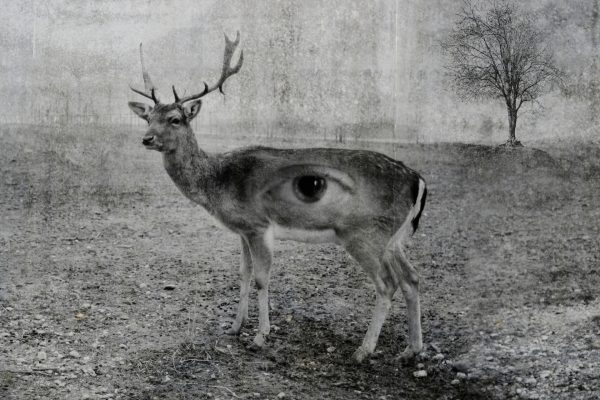Children are turning abusers. Elder abandonment and neglect in India…is a subject often pushed under the carpet. Most elders become silent sufferers and don’t talk about it, as it becomes a matter of family honour for them, due to fear of retaliation. The problem needs to be dealt with at its root. The degeneration of our value system has heightened this problem.
Mathew Cherian, CEO HelpAge India.
The title of this project “Godhūlikāla”, in the ancient Sanskrit language, directly translates as ‘cow dust time’, referring to twilight or evening time when cows returning from a day’s grazing would cause a cloud of dust to rise up from the ground; so are these elderly members of their communities in the twilight of their lives.
I set out to investigate this distressing trend of abandonment and abuse over the course of several months and travelled through many villages in northern India. Not all of the stories in my project relate to elder abuse or abandonment. In my search for such cases, many of the people who I spoke to and photographed were positive cases where elders were being supported by their children and families but who were suffering with illness and poverty issues. The project widened as a result of these contrasting stories and became more about how societies treat their elderly members in a place where healthcare is not free. It is also part of a wider study into understanding how caring for elders is changing in India as a result of society becoming more westernized, and moving away from the traditional way of life.
Some of what I found was extremely alarming. Stories of elders being ill-treated at home or turned out by their children were numerous. Such elders are forced to tolerate abuse for the sake of ‘family honour’ and live on the street or, if they are fortunate, enter a ‘poor house’ or ‘old people’s home’. Many elders who live in government care homes are without activities or purpose in their lives and become severely depressed. At one village, the local residents led me to a government-run home for the aged. The conditions there were appalling. Sadly, instead of seeking to remedy the situation in that home, it appears that vested interests with a stake in maintaining the status quo had managed to conceal it. I did, however, succeed in interviewing some of the residents and record some of their heart-rending stories both in still photographs and video clips.
My preliminary research indicates that abuse and neglect of the elderly in India is a phenomenon that is, sadly, widespread across the nation. According to HelpAge India, the premier elder rights advocate in the country, 50% of elderly people experience abuse from their own children in some form during their lives. Of these, 52% are women and 48% are men.
I wanted to investigate this pernicious practice and, by documenting victims’ stories, shed more light on the inherent causes with the aim of initiating a discussion, creating awareness, bringing about change and helping those who need help the most. I want to show that those elders who are victims of abuse or abandonment are not being given adequate support. As a result of their situations they are falling into depression and living the final years of their lives unhappy, unhealthy, and lonely.
The issue of elder abuse and abandonment was first brought to my attention by my friend Siddhartha Krishna, a Hindu monk and teacher at Omkarananda Ashram. One afternoon whilst I was visiting him and his father in Rishikesh, he told me about the abandoned elderly. He said he had witnessed elderly people dying by the river Ganges, while citizens and even family members turned a blind eye. I was horrified to hear about this and started researching online. This resulted in discussions with like-minded people such as Gautam Trivedi, an architect, artist and teacher with experience of care-giving. He knew a great deal about the subject and pointed me in the direction of the NGO HelpAge India who were helpful with my initial research. I asked Gautam as an Indian citizen what he thinks needs to happen in order for the government to wake up and take care of India’s elders:
“There is some awareness in the Government about the seriousness of the issue and the need to help elders rebuild their lives, take charge of their own future, restore self worth and confidence. Lawmakers have brought in experts such as HelpAge and others to help frame laws and policies such as the National Policy on Older Persons and the Maintenance & Welfare of Parents and Senior Citizens Act (2007). Work in the pipeline includes the addition of age care to the school curriculum, provision of old age pensions (some states have introduced this scheme but it is not adequate), reverse mortgage scheme and setting up a helpline for distress calls (HelpAge has a helpline operational). More needs to be done, however, and I am not sure the Government alone can handle this problem. It is not exactly a top priority for the Government and the same holds true for the people. Also I think the Government and its bureaucracy tend to act as stumbling blocks rather than facilitators, with the result that citizens who do want to take action hesitate to do so. The entire nation needs to wake up and do some serious introspection about the direction we are heading in. That is where creative, compassionate and concerned people such as you, Siddharthaji and others can help by increasing awareness and provoking more discussion.”
In India, it seemed to me that older people are now seen more as an impediment to their children’s and grandchildren’s enjoyment of life, rather than a repository of wisdom and life experience which should be revered. However, if they own land they can also be seen as a resource. I recently heard a very interesting programme ‘Crossing Continents: India’s Living Dead’ on BBC Radio 4, regarding people in India who had been declared dead by their own family to release property and money. The Kafka-esque nature of some Indian bureaucracy meant that by the time the victims had proved they were still alive, all of the value in their property had been spent. There is a wider point to all of this and it is that a social media obsessed society places a very low value on old age and the elderly.





























